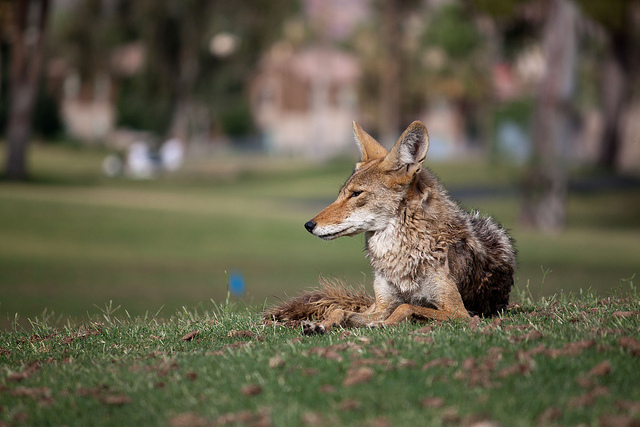 OFFICIALS ALERT SOUTHERN CALIFORNIANS OF INCREASED COYOTE ACTIVITY
OFFICIALS ALERT SOUTHERN CALIFORNIANS OF INCREASED COYOTE ACTIVITY
Officials across Southern California have seen an increase in coyote activity in residential areas and public parks. Coyotes live throughout the region and are often seen year round. Normally, coyotes pose no threat to humans and keep their distance. But if they have access to food and garbage, they lose their fear of humans and can become aggressive. Feeding coyotes encourages them to cluster in busy areas and approach people. The main areas of concern are open park space, hiking trails, brush areas, picnic areas, and children’s play areas.
City, county, and state officials urge the public to follow these safety guidelines:
- Never feed coyotes.
- Do not approach coyotes for any reason.
- Closely supervise all children while in public parks and open spaces.
- Keep pets on leash and close by at all times.
- Keep pet food and water dishes inside.
- Secure food and trash at all times and remove all sources of water.
- If a coyote approaches or acts aggressively, throw rocks, make noise, look big, and pick up small children and pets. Do not turn your back to the animal.
- If a coyote is frequently seen around schoolyards or playgrounds or is acting aggressively, contact your local animal control or the California Department of Fish & Wildlife (CDFW) at (858) 467-4201 or the Los Angeles City Park Rangers at (323) 644- 6661.
- If a coyote attacks, call 911. The county’s Veterinary Public Health Program works with bite victims to ensure they receive proper care, and CDFW is notified of all attacks.
In Los Angeles, the Department of Recreation and Parks has responded to increased coyote activity in parks with a number of preventive actions:
- Installation of additional “No Feeding Wildlife” signs.
- Verification that sealed trash cans have coyote proof lids.
- Increase of trash removal to twice a day.
- Removal of nearby overgrown brush and hanging bushes to improve visibility.
- Increased patrols by park rangers and Security Services Division.
- Distribution of educational pamphlets to park visitors.
For more information on living responsibly with wildlife, please visit www.keepmewild.com